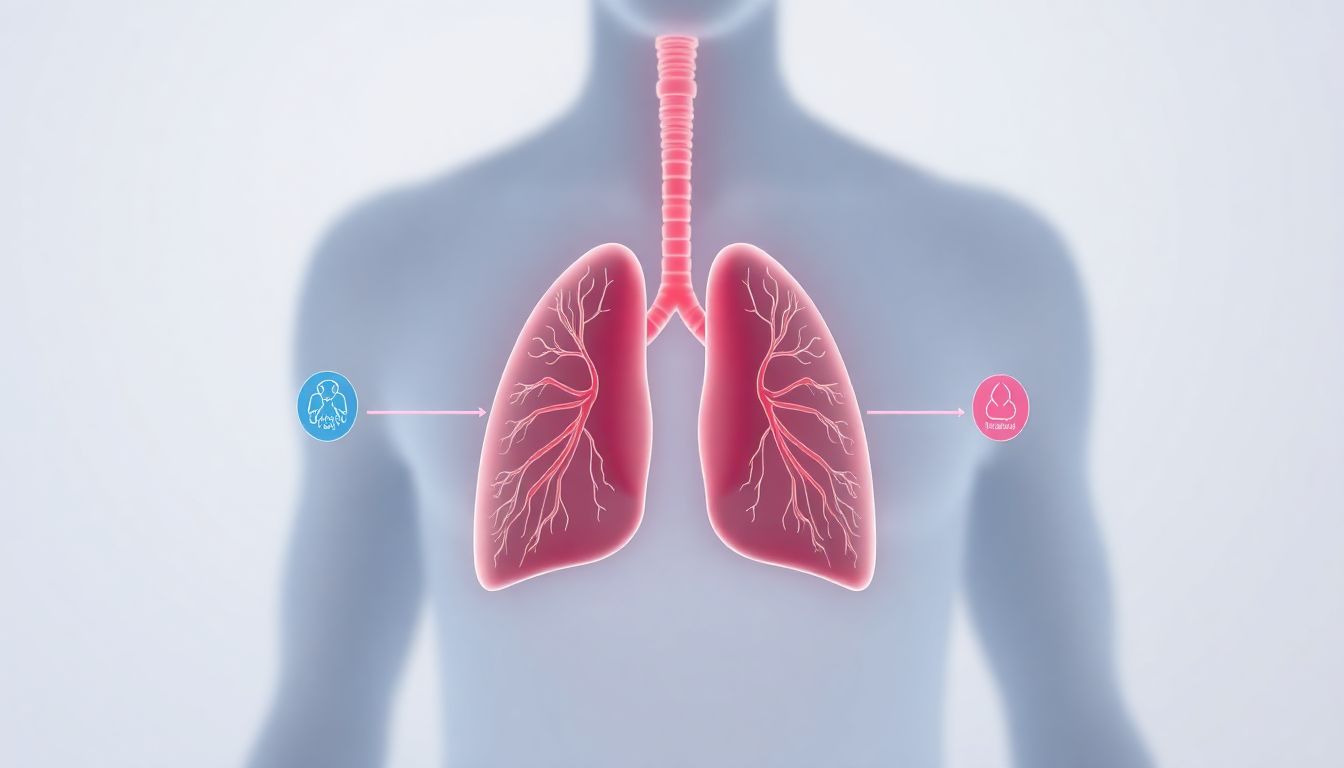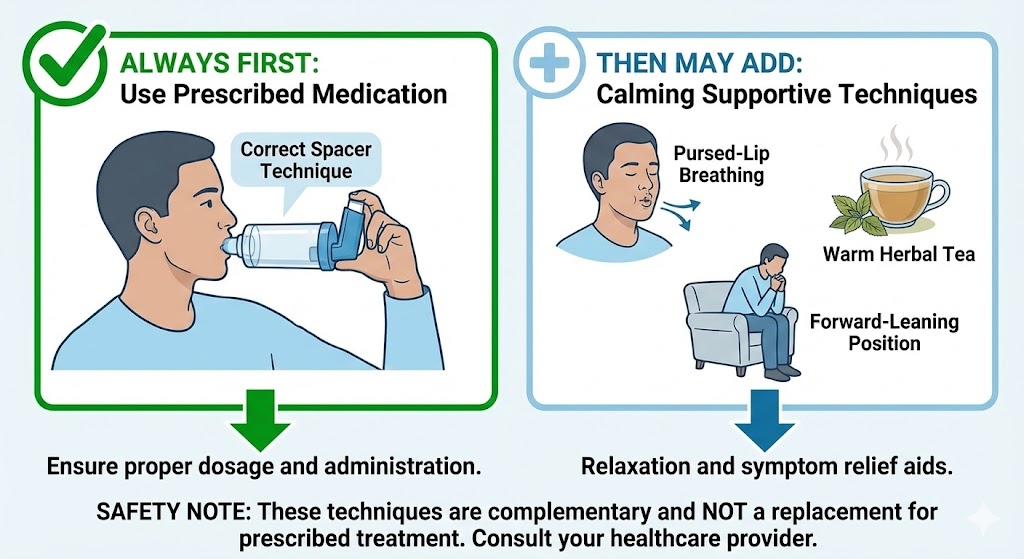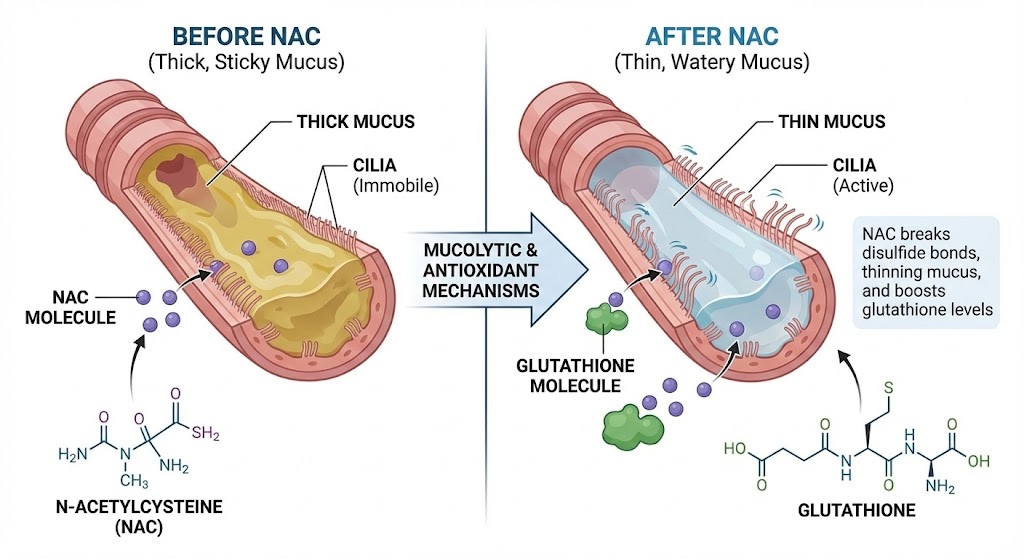If you’ve ever noticed your breathing changes with your stress levels, menstrual cycle, or during life transitions like menopause, you’re not imagining things. There’s a powerful, often overlooked connection between your hormonal landscape and your respiratory function that science is just beginning to fully appreciate.
Your hormones act as master regulators of nearly every bodily function—including how you breathe. From the cortisol that surges during stress to the estrogen and progesterone that fluctuate throughout your cycle, these chemical messengers directly influence your lung capacity, airway reactivity, and even how your brain perceives the need for air.
The Stress Hormone Trio: Cortisol, Adrenaline, and Your Breath
When stress strikes, your body releases cortisol and adrenaline—hormones designed for short-term survival but increasingly kept elevated in our modern, always-on world.
Cortisol’s Double-Edged Sword:
- Short-term: Helps manage inflammation and provides energy
- Chronic elevation: Creates systemic inflammation, weakens immunity, and increases airway reactivity
Adrenaline’s Immediate Impact:
- Increases respiratory rate for fight-or-flight response
- Constricts airways to prioritize oxygen to vital organs
- Creates that “panic breathing” sensation
This explains why many people experience breathing difficulties during stressful periods, even without underlying lung disease. As we explore in The Vagus Nerve & Your Lungs: The Missing Link to Calming Coughs, your nervous and hormonal systems work together to regulate breathing.
Sex Hormones: The Estrogen-Progesterone Breathing Dance
For women, the monthly hormonal dance between estrogen and progesterone creates predictable patterns in breathing function that are often misunderstood or misdiagnosed.
Estrogen’s Protective Effects:
- Supports lung tissue elasticity and function
- Has anti-inflammatory properties
- May explain why asthma often improves during pregnancy (when estrogen is high)
Progesterone’s Respiratory Stimulation:
- Acts as a natural respiratory stimulant
- Increases respiratory drive and depth
- Can cause feelings of breathlessness during the luteal phase
Many women experience “premenstrual asthma” or cyclic breathing patterns that directly correlate with their hormonal fluctuations. Understanding this connection can prevent unnecessary worry and inappropriate treatment.
5 Signs Your Hormones Might Be Affecting Your Breathing
How can you tell if hormones are playing a role in your respiratory challenges? Look for these patterns:
- Cyclic Symptoms: Breathing issues that worsen at specific times in your menstrual cycle
- Stress Correlation: Symptoms that flare during high-stress periods
- Life Transition Timing: New breathing problems during perimenopause, postpartum, or other hormonal shifts
- Treatment Resistance: Breathing issues that don’t respond well to standard respiratory medications
- Multiple System Involvement: Breathing problems accompanied by other hormonal signs like sleep issues, weight changes, or mood swings
If you’re experiencing persistent throat clearing along with these patterns, our guide Why Am I Always Clearing My Throat? (Not Allergies) might provide additional insights.
7 Ways to Balance Hormones for Better Breathing
The good news is that you can support hormonal balance naturally, which often leads to significant improvements in breathing function.
1. Master Stress Management
Since cortisol directly impacts breathing, stress reduction is non-negotiable.
- Practice: Daily Diaphragmatic Breathing: The #1 Exercise to Strengthen Your Lungs to calm your nervous system
- Why it works: Reduces cortisol and supports parasympathetic dominance
2. Support Blood Sugar Balance
Blood sugar swings create stress hormone surges that affect breathing.
- Eat: Balanced meals with protein, healthy fats, and fiber
- Avoid: Sugar spikes and crashes that trigger cortisol release
3. Optimize Sleep Quality
Sleep is when your body does most of its hormonal housekeeping.
- Aim for: 7-9 hours of quality sleep nightly
- Support: Consistent sleep-wake cycles to regulate circadian rhythms
4. Incorporate Anti-Inflammatory Nutrition
Chronic inflammation disrupts hormonal balance and worsens breathing.
- Focus on: Foods from The Lungs’ Best Friends: Top 5 Anti-Inflammatory Foods
- Avoid: Inflammatory foods that strain hormonal systems
5. Support Liver Detoxification
Your liver processes used hormones—if it’s overloaded, hormonal balance suffers.
- Include: Cruciferous vegetables, beets, and adequate protein
- Reduce: Alcohol and toxin exposure
6. Consider Adaptogenic Herbs
Herbs like ashwagandha, rhodiola, and holy basil can help modulate stress hormone response.
- Consult: A qualified practitioner for personalized recommendations
- Combine with: Other herbs from Herbs and Spices for Respiratory Health: Beyond Mullein
7. Track Your Patterns
Keep a symptom journal to identify hormonal patterns in your breathing.
- Note: Breathing changes, stress levels, menstrual cycle, and symptoms
- Look for: Patterns that reveal hormonal connections
Special Considerations for Life Stages
Perimenopause and Menopause:
Declining estrogen can reduce lung elasticity and function. Many women experience new breathing challenges during this transition. Supporting hormonal balance becomes crucial for maintaining respiratory health.
Pregnancy:
Hormonal changes and physical pressure can affect breathing. While progesterone increases respiratory drive, the growing uterus can mechanically limit diaphragm movement.
Postpartum:
Dramatic hormonal shifts after childbirth can trigger breathing changes, often overlapping with the stress and sleep deprivation of new motherhood.
When to Seek Specialized Help
While these strategies help most people, consider consulting a healthcare provider if you experience:
- Severe or sudden breathing changes
- Symptoms that significantly impact daily life
- Concerns about thyroid or other hormonal disorders
- Breathing issues during pregnancy that cause concern
If you’re unsure whether your symptoms are hormonally related or indicate something else, our guide Is It Asthma or Something Else? 5 Conditions Often Misdiagnosed can provide additional clarity.
The Bottom Line: Your Hormones Are Breathing Messengers
Understanding the hormone-breathing connection transforms how you approach respiratory health. Instead of seeing breathing issues in isolation, you can recognize them as messengers about your overall hormonal and stress landscape.
By supporting hormonal balance through stress management, nutrition, sleep, and lifestyle, you’re not just helping your breathing—you’re creating foundation health that supports every system in your body.
Remember that hormonal balance is a journey, not a destination. Small, consistent steps toward balance create compounding benefits for your breathing and overall wellbeing.
FAQs:
1. How do stress hormones like cortisol affect breathing?
Cortisol and adrenaline directly impact your breathing by constricting airways, increasing respiratory rate, and triggering inflammation. Chronic stress keeps these hormones elevated, leading to persistent breathing difficulties even without physical triggers.
2. Can hormonal changes during menopause affect lung function?
Yes, declining estrogen levels during menopause can reduce lung elasticity and function. Many women experience new or worsening breathing issues during perimenopause and menopause due to these hormonal shifts affecting respiratory tissues.
3. Why do some women experience breathing changes during their menstrual cycle?
Progesterone peaks during the luteal phase (second half of your cycle), which acts as a respiratory stimulant. This can cause faster, deeper breathing or feelings of breathlessness in sensitive individuals, often mistaken for asthma.
4. How does thyroid function impact breathing?
Both hypothyroidism and hyperthyroidism can affect breathing. Low thyroid function may weaken respiratory muscles, while overactive thyroid can increase oxygen demand and cause breathlessness. Thyroid hormones directly influence metabolic rate and respiratory drive.
5. Can balancing hormones really improve chronic breathing issues?
Absolutely. Many people find that addressing hormonal imbalances resolves breathing problems that didn’t respond to conventional respiratory treatments. Hormonal balance supports reduced inflammation, better stress resilience, and optimal tissue function.
6. What are the signs that hormones might be affecting my breathing?
Key indicators include: breathing issues that fluctuate with your menstrual cycle, worsening symptoms during high stress, new breathing problems during perimenopause, or respiratory issues that don’t respond to standard asthma treatments.
7. How does chronic stress create long-term breathing problems?
Prolonged stress keeps cortisol elevated, which leads to systemic inflammation, immune dysfunction, and changes in how your brain regulates breathing. This can create hyper-reactive airways and altered breathing patterns that persist even after the stressor is gone.
8. Can birth control pills affect breathing?
Some women report breathing changes when starting or changing hormonal contraception. Synthetic hormones can affect fluid balance, inflammation, and respiratory drive, though responses vary significantly between individuals.
9. How do hormones influence asthma?
Hormones can dramatically affect asthma severity. Many women experience “premenstrual asthma” where symptoms worsen before their period. Stress hormones can also increase asthma frequency and severity by promoting inflammation and bronchoconstriction.
10. What natural approaches help balance hormones for better breathing?
Key strategies include stress management techniques, blood sugar balance, supporting liver detoxification, ensuring adequate sleep, and using adaptogenic herbs. These approaches help create hormonal harmony that supports optimal respiratory function.











